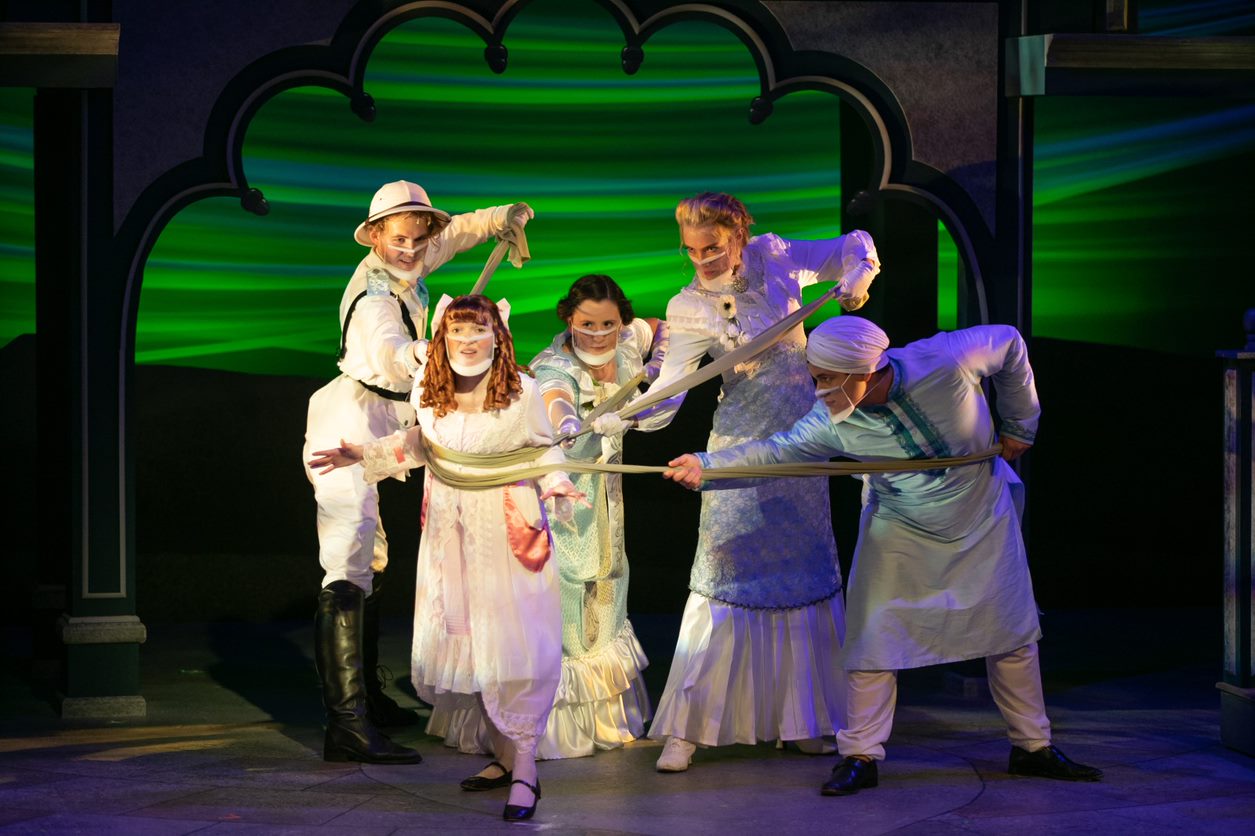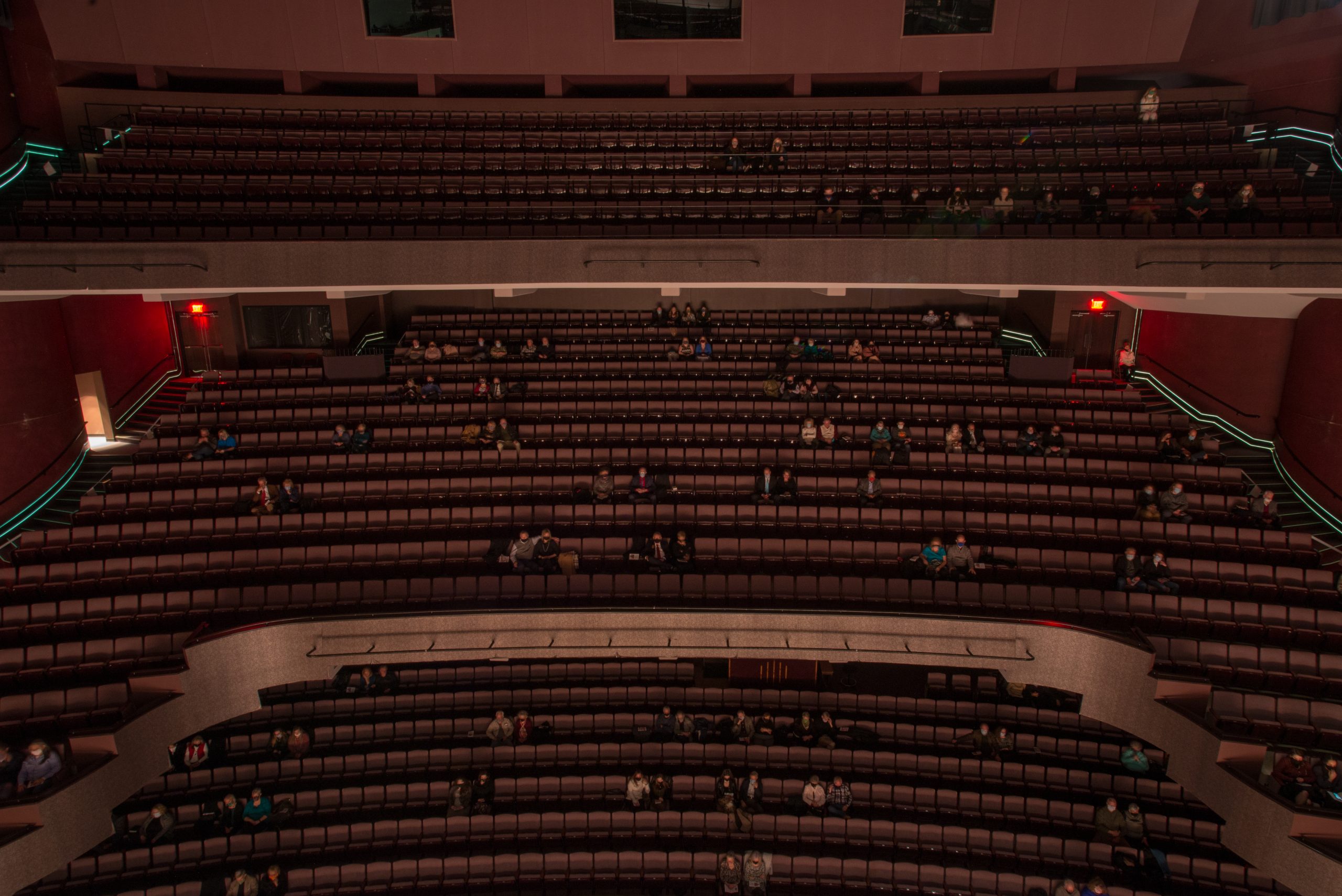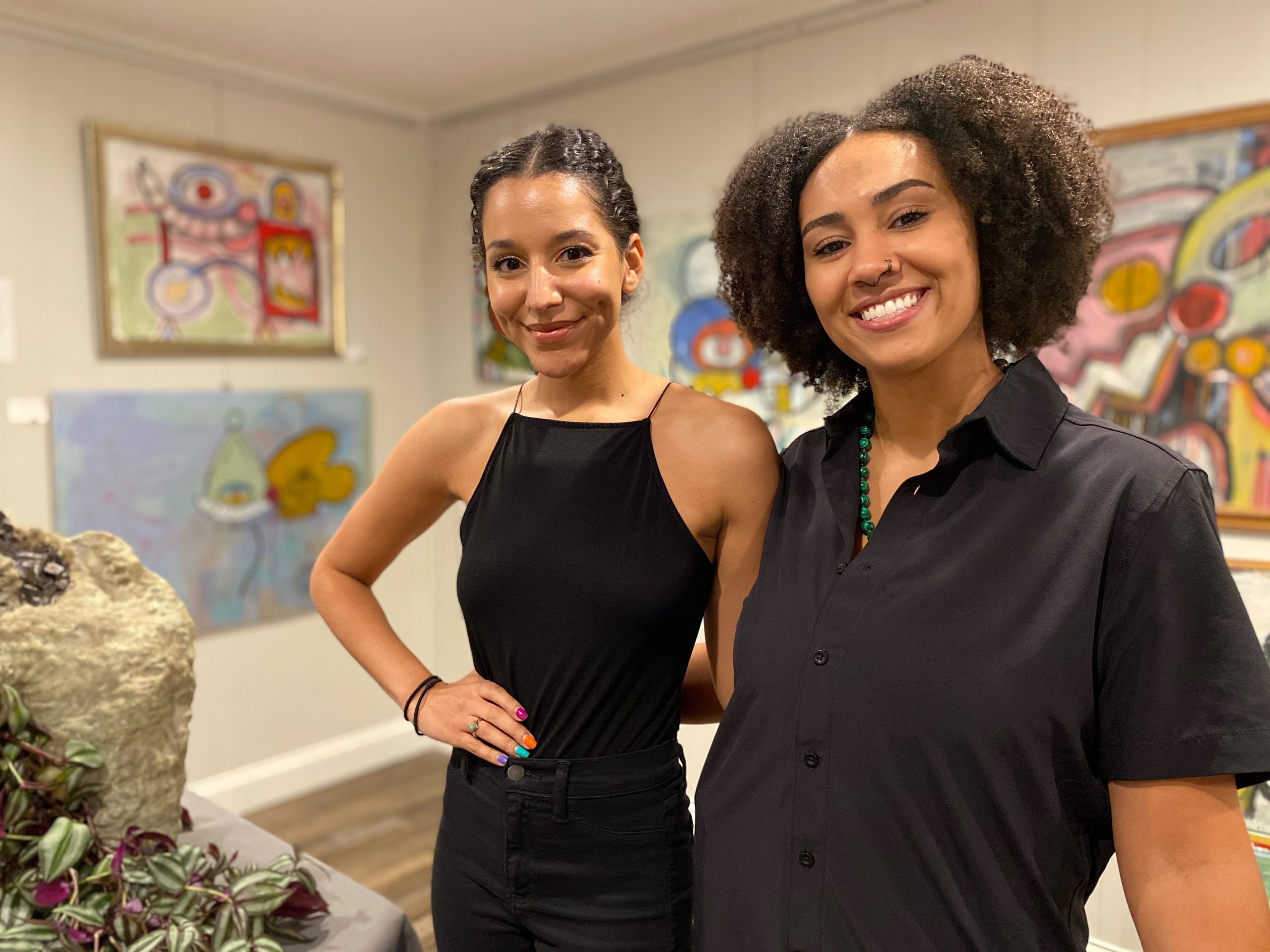In 2013, Jessica Ryan — a Missouri State graduate living in New York City — established her business, Broadway Unlocked, a digital theater platform company. When COVID-19 swept the nation in 2020, interest in her business services surged and since June 2020, her team has produced roughly 70 live digital shows. Ryan also has helped 100 or so individual theaters figure out how to host virtual programming and fundraisers — including Springfield Contemporary Theatre.
Several Springfield organizations have adopted virtual presentation tools as a safe way to reach audiences who can’t, or won’t, go to theaters. Interest in digital and livestream options soared as a result of COVID, Ryan says: “Theaters are starting to explore how they can use digital to grow audiences, and to engage them more deeply.”
In February 2021 with help from Broadway Unlocked, SCT presented a virtual concert that streamed over several performance nights. According to Rick Dines, artistic managing director, SCT has adhered to stricter pandemic protocols than some Springfield performing organizations have. Offering the virtual show was a safe way to connect with patrons.
For its opening night, they hosted virtual pre- and post-show parties including chats with actors and directors. It was well-attended by viewers around the country, especially because it had a strong MSU connection, Dines says: “It was like being at the theater for an event; it just was all virtual.”
The pandemic shutdown nudged licensing companies to provide more options for live streaming, which several Springfield organizations have folded into programming. Shannon Sherrow, marketing director for Springfield Little Theatre, says interest in live-streamed shows has been strong. Not all productions allow it, but when they do, it benefits the theater and viewers, she says: “We opened our doors and said if you’re comfortable to come in, we welcome you. But also, if you feel safer staying home, this is another option as well. And a lot of people took advantage of that, which was really great.” Sherrow says they would livestream every show if they could, but with Broadway theaters and tours reopening, fewer digital licenses are made available now.
Springfield Ballet, Springfield Symphony Orchestra, Ozarks Lyric Opera and Missouri State University Department of Theatre and Dance have presented livestream experiences, too. Abigail Lind, executive director for Springfield Ballet, says she loves the streaming option and hopes it continues, especially because it extends their reach to distant audience members and to schools.
The symphony, a member of the League of Orchestras, reached out to other symphony programs for livestream platform advice, says Jennifer Cotner-Jones, symphony executive director. Live-streamed performances, funded by a sponsorship, continue to be available in 2022. “I like it because we are able to get to more communities in the rural areas that have bussing issues. So we were able to broaden our reach,” Cotner-Jones says.

In the fall of 2020, MSU Theatre and Dance obtained a license to record and stream a staged production of “The Secret Garden,” which was not performed in front of an audience. The show was in final dress rehearsals in March 2020 when it was canceled with the shutdown. While the virtual option was successful and expanded their reach, ticket sales did not increase their revenue by much, says Mark Templeton, the program’s managing director.
Digital streaming is something arts organizations have discussed for years, says Leslie Forrester, executive director for the Springfield Regional Arts Council. COVID forced those discussions into action, she says. While it’s been a great tool for expanding accessibility during the pandemic, she says, “it was not a replacement for ticket sales. It never rose to that. Especially moving forward as COVID emergency funds went away and there was no longer that safety net.”
Even if licensing companies continued to allow it, Ryan doesn’t think most small regional theaters are ready yet to adopt livestream permanently because of equipment and cost. However, she envisions a future when it becomes more mainstream. She’s encouraged to see new theatrical shows being developed for both live and digital performances — one positive result of the pandemic.
Dines agrees that regular digital livestream isn’t practical yet. You can’t just “flip a switch and it happens,” he says. Also, SCT patrons have made it clear that’s not how they want to view live theater, Dines adds: “So if people aren’t going to buy into this, it just didn’t warrant spending that kind of money to continue.”
Templeton says live streaming was a nice alternative for MSU in the early throes of the pandemic. “But that’s not who we are. And it wasn’t such a revenue-maker for us and there are expenses associated with that. So we do not anticipate it being a component going forward.”
Ryan says she’s optimistic about the future of theater, in spite of pandemic setbacks. Smaller theaters especially, she says, have the flexibility to reinvent themselves as demonstrated by adding or trying virtual productions. “I have to believe no one in the world is as creative as theater people, or as resourceful or imaginative,” she says.





